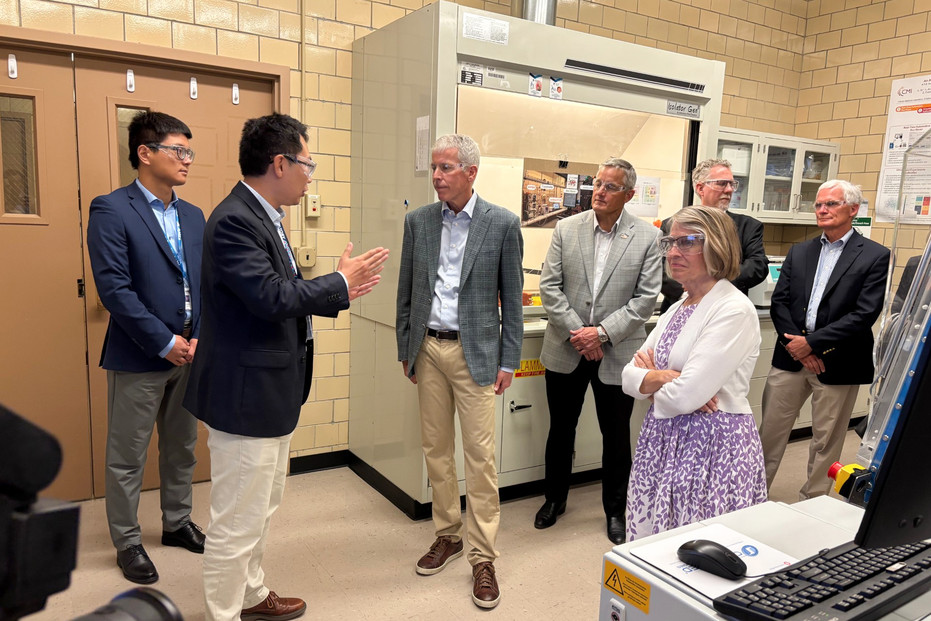As energy costs climb across the country, the conversation around who is responsible — and what role renewable energy should play — has intensified. In a recent interview with POLITICO, Trump’s Energy Secretary Chris Wright defended the administration’s stance on energy policy, arguing that Democrats will be blamed for higher power prices despite growing criticism of the White House’s restrictions on solar and wind power development.
Wright insisted that the administration’s efforts to slow down renewable energy expansion are not the cause of current spikes in energy costs, instead pointing to what he described as “Democratic mismanagement” of the broader energy system. But for many climate advocates, this position overlooks critical realities about the energy transition, fossil fuel dependence, and the urgent need for cleaner, more sustainable solutions.
At Sustainable Action Now, we believe in cutting through political rhetoric to focus on what truly matters: the climate crisis, renewable energy access, and long-term energy justice. You can read more about the connections between politics, power, and our environment in our climate section.
The Debate: Fossil Fuels vs. Renewable Energy
The Trump administration has long prioritized fossil fuel industries — oil, gas, and coal — over renewable alternatives. Policies under Wright’s leadership have rolled back incentives for clean energy, delayed wind and solar projects, and redirected subsidies toward traditional energy sources.
Critics argue that these decisions not only stall progress on decarbonization but also leave consumers vulnerable to volatile fossil fuel prices, which tend to spike in times of global instability. By reducing investment in solar and wind, they argue, the administration has made the U.S. more dependent on expensive and environmentally damaging fuels.
Meanwhile, renewable energy advocates point to decades of research showing that solar and wind are increasingly cost-competitive, resilient, and essential for both economic stability and climate mitigation.
Who Really Bears Responsibility for Rising Power Prices?
While Wright claims Democrats will be blamed for surging energy costs, analysts highlight several factors behind current price hikes:
- Global Market Volatility – Fossil fuel prices are directly impacted by international supply shocks, wars, and production disputes.
- Infrastructure and Grid Challenges – Aging power grids and lack of modernization increase costs for maintenance and emergency resilience.
- Policy Delays – Slowed investment in renewable infrastructure has left gaps that could otherwise help stabilize pricing with cheaper, homegrown clean energy.
- Climate Disasters – More frequent extreme weather events, fueled by climate change, disrupt both energy supply and demand, leading to further instability.
Blaming one political party oversimplifies a deeply complex issue — and risks distracting from the real, systemic changes needed to address both affordability and sustainability.
The Climate Imperative
The science is clear: reliance on fossil fuels is not just an economic risk, it is an existential one. Every year of delay in expanding solar, wind, and other renewable resources intensifies the climate crisis and increases the likelihood of devastating floods, fires, hurricanes, and droughts.
Wright’s comments — placing blame on Democrats while dismissing the administration’s role in stifling clean energy growth — reveal the deeper political divide at play. But climate change does not recognize partisan lines. Rising seas, record-breaking heatwaves, and destructive storms will affect all communities, regardless of political affiliation.
For that reason, climate advocates emphasize that the debate should not be about who gets blamed but rather about who takes action. You can explore more about sustainable solutions and renewable energy initiatives in our climate category.
Sustainable Action Now: Moving Beyond Rhetoric
While partisan debates dominate headlines, the real question is: what future are we building? Will we continue down a path that locks in fossil fuel dependence, higher prices, and worsening climate disasters, or will we invest in resilient, affordable, renewable solutions that protect both people and the planet?
At Sustainable Action Now, we call for:
- Accelerated investment in solar, wind, and battery storage, making clean energy the backbone of our grid.
- Fair energy pricing, ensuring that working families are not left to shoulder the burden of policy delays or industry profits.
- Accountability and transparency in energy leadership, regardless of political party.
- Climate justice policies that prioritize vulnerable communities most impacted by energy inequities and climate disasters.
Final Thoughts
Energy Secretary Chris Wright’s assertion that “we’re going to get blamed” for power price increases may capture the political spin of the moment, but it sidesteps the urgent reality: our energy future depends on embracing renewable power, not resisting it. Rising costs, worsening climate disasters, and continued fossil fuel dependence demand leadership that looks beyond party lines and toward sustainable action.
The time to argue over blame has passed. The time to build a cleaner, fairer, and more resilient energy system is now.
For more reporting on the intersection of energy, politics, and the environment, visit our climate section.


